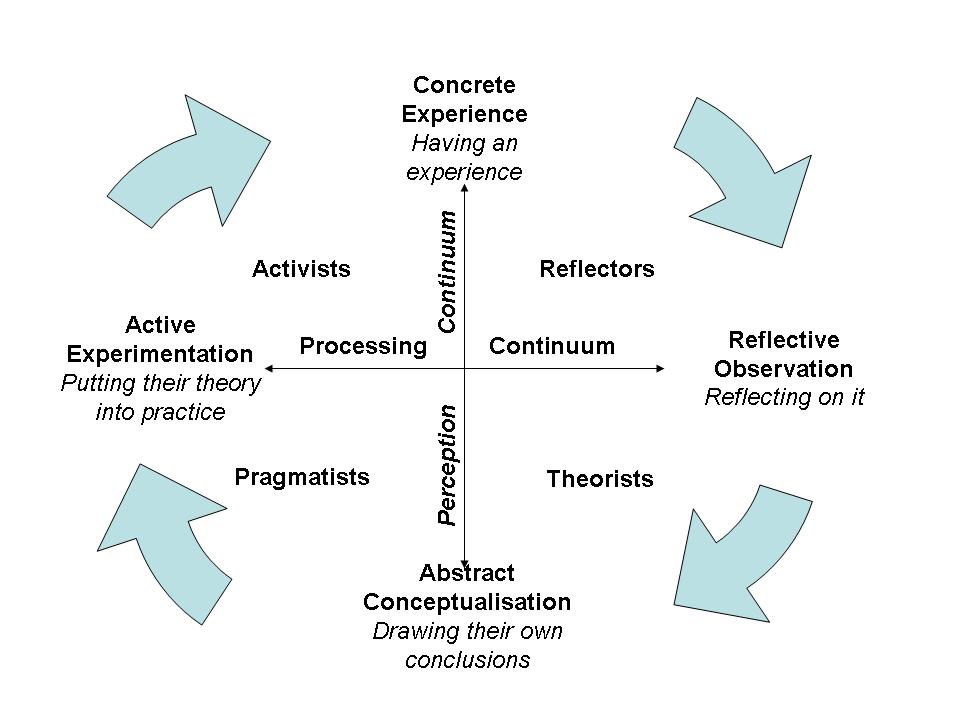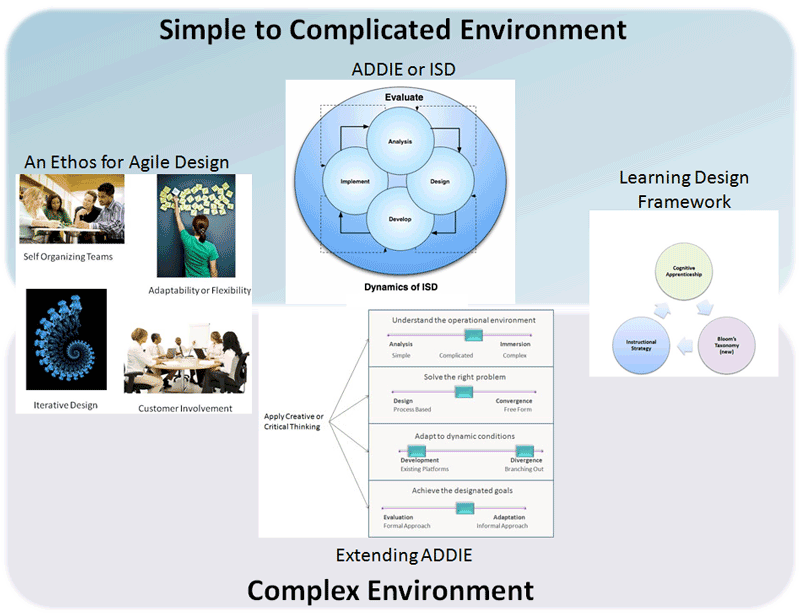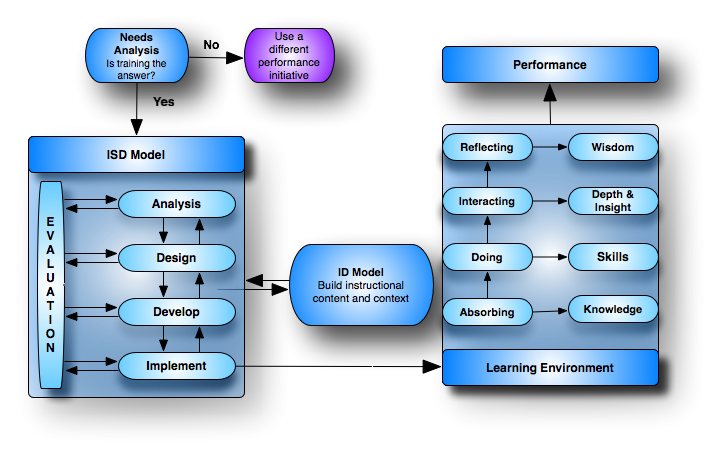Honey and Mumford's Learning Styles Questionnaire
Note: While you can start at any of the major themes listed to the left of this screen, you should read the Introduction to get a background of learning styles.
Kolb is the inspiration for a large numbers of theorists. For example, Honey and Mumford's model, Learning Styles Questionnaire (LSQ), is directly derived from Kolb's theory. Honey and Mumford (2000) note their debt to Kolb's theory, however, they also note that they produced their own Learning Styles Questionnaire (LSQ) because they found that Kolb's LSI had low face validity with managers. So rather than asking people directly how they learn, as Kolb's LSI does, Honey and Mumford gave them a questionnaire that probes general behavioral tendencies. Their reasoning is most people have never consciously considered how they really learn.
While basically the same as Kolb's model, there are a couple of differences. First, they substitute the terms “reflector” for divergers (reflective observation), “theorist” for assimilators (abstract conceptualization), “pragmatist” for convergers (concrete experience), and “activist” for accommodators (active experimentation). In addition, the new labels have slightly different meanings.
They also postulate that people prefer different methods of learning, depending upon the situation and their experience level, thus they move between the four modes of learning, rather than being dominantly locked into one mode.
Honey and Mumford's learning cycle also slightly differs from Kolb's:
- Having an experience
- Reflecting on it
- Drawing their own conclusions (theorizing)
- Putting their theory into practice to see what happens
Based on the result, the learners can then move around the cycle again, jump in any part of the cycle, and then quit when they deem them self as successful (learned the task or material). Their model looks similar to this:

- Reflector - Prefers to learn from activities that allow them to watch, think, and review (time to think things over) what has happened. Likes to use journals and brainstorming. Lectures are helpful if they provide expert explanations and analysis.
- Theorist - Prefer to think problems through in a step-by-step manner. Likes lectures, analogies, systems, case studies, models, and readings. Talking with experts is normally not helpful.
- Pragmatist - Prefers to apply new learnings to actual practice to see if they work. Likes laboratories, field work, and observations. Likes feedback, coaching, and obvious links between the task-on-hand and a problem.
- Activist - Prefers the challenges of new experiences, involvement with others, assimilation and role-playing. Likes anything new, problem solving, and small group discussions.
For a sample survey based on Honey and Mumford's model and Kolb's model, see the Learning Style Survey.
References
Coffield, F., Moseley, D., Hall, E., & Ecclestone, K. (2004). Learning styles and pedagogy in post-16 learning: A systematic and critical review. www.LSRC.ac.uk: Learning and Skills Research Centre. Retrieved January, 15, 2008: http://www.lsda.org.uk/files/PDF/1543.pdf
Honey, P. & Mumford, A. (2000). The learning styles helper's guide. Maidenhead: Peter Honey Publications Ltd.



